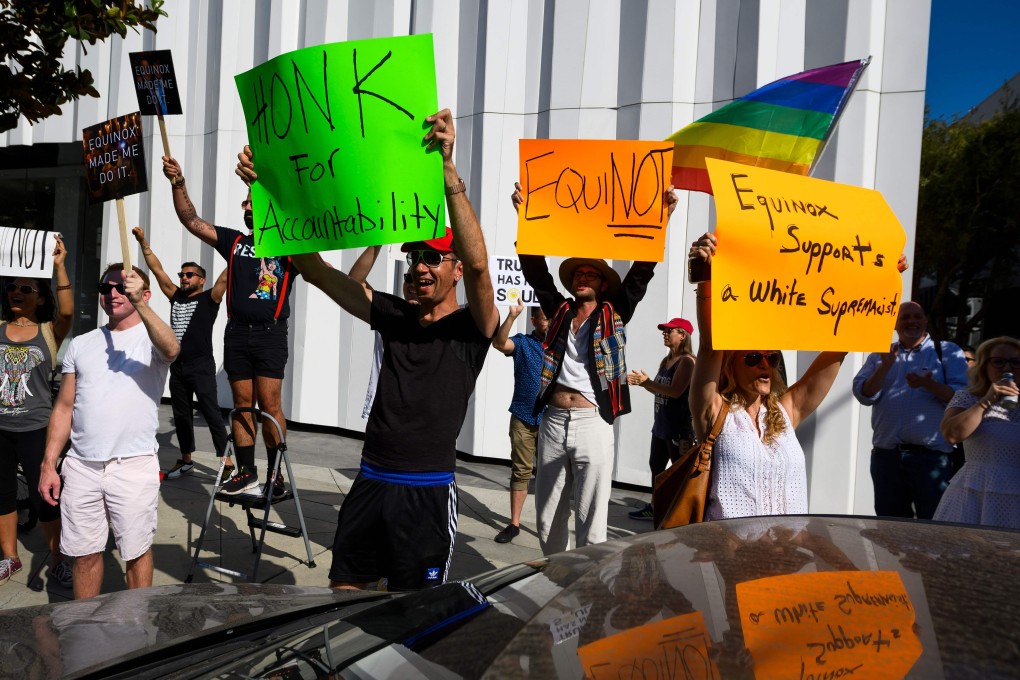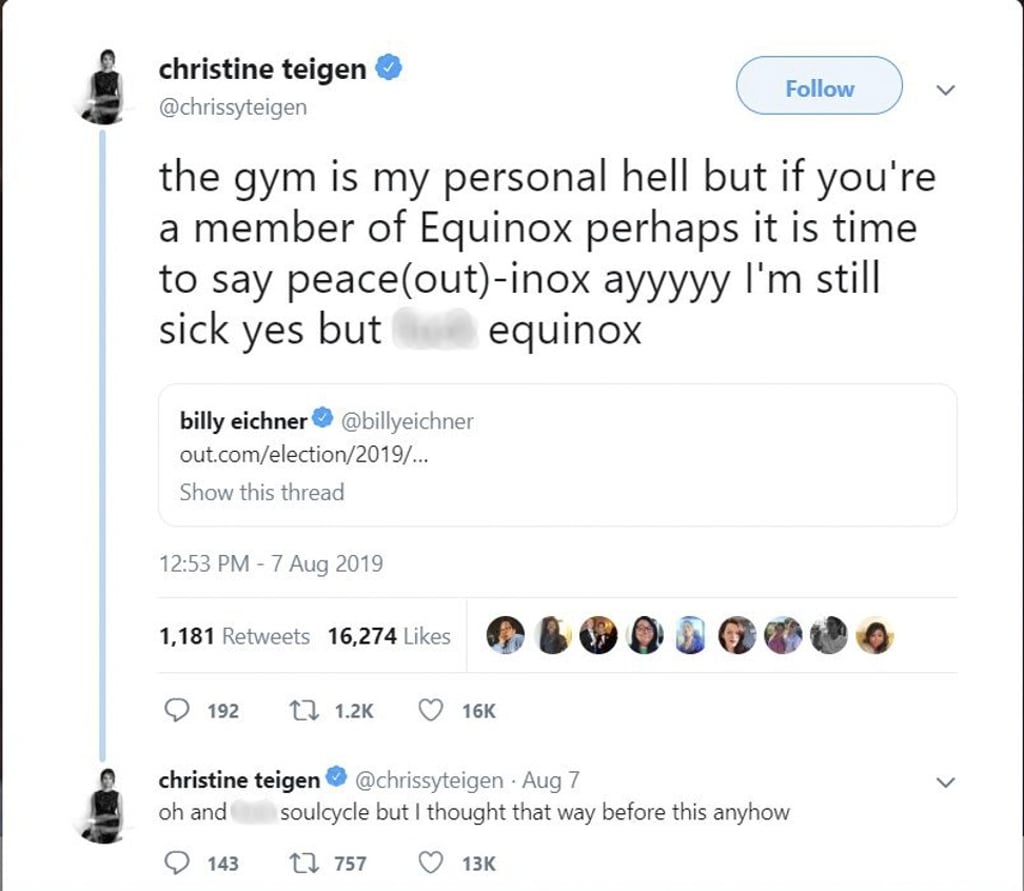Opinion | Boycott this, boycott that – where do you draw the line? Progressives and posturing nationalists don’t seem to know
- Models drop fashion brands perceived to have threatened Chinese sovereignty, while US progressives start a boycott of a Trump-supporting gym owner and developer
- It’s never been easier to accuse brands of giving offence, but in their selective choice of targets, accusers are being inconsistent, if not hypocritical

The fear of causing offence that has been running rampant in the fashion industry with the recent rise of watchdog culture reached new heights this month when two very different, but in a way quite similar, controversies broke out in the United States and China.
On August 7 news broke that Stephen Ross, chair of the company that owns trendy gyms Equinox and SoulCycle, would be hosting a fundraising dinner for US President Donald Trump.
It didn’t take long for celebrities, including comedian Billy Eichner and model Chrissy Teigen, and fashion designers such as Prabal Gurung, to call for boycotts of those companies.

While taking a stand has become a requirement for brands trying to stay relevant with millennials and younger consumers, there are some questions worth asking.
